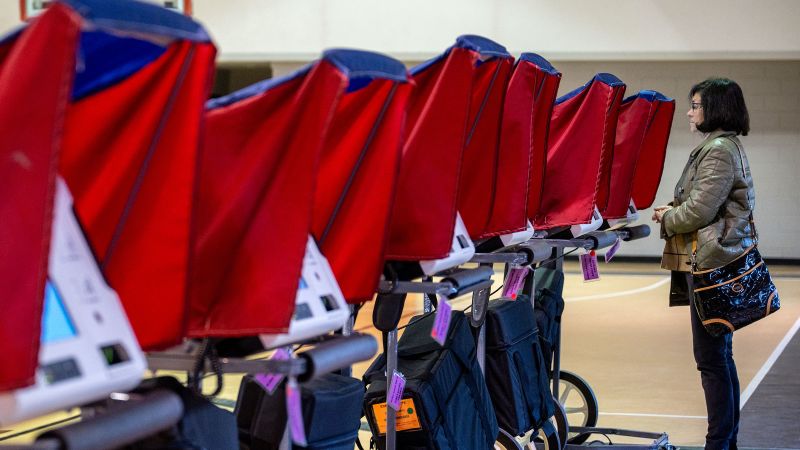David Becker, founder of the Center for Election Innovation & Research, believes that voting in the US is more secure, transparent, and verifiable than ever before. He points out that the country has more paper ballots, audits, preelection litigation, voter lists, and post-election litigation to confirm accurate results. Despite claims of voter suppression and undocumented immigrants voting, the system offers more ease of participation with increased accessibility to early voting and voting by mail. Becker encourages voters to participate and see for themselves how easy and rewarding the process can be.
While confidence in the electoral process has decreased in recent years, Becker notes that the decline is largely attributed to falsehoods spread by losing candidates, particularly Donald Trump. He stresses the importance of addressing the reality of election security and working from there, rather than succumbing to lies. Voter list maintenance, a normal aspect of election administration, is crucial for ensuring accuracy and preventing fraud. Becker urges against hyper-partisans using list maintenance as a tool for political gain close to an election, causing confusion and false impressions among voters.
Poll watchers, although a normal part of the process, are a cause for concern when deployed in a way that interferes with voting. Republicans organizing poll watchers is not a new phenomenon, but their presence should not intimidate voters or disrupt the process. Concerns have also arisen regarding proposed changes to prove citizenship when registering to vote. Becker emphasizes that current systems are effective in preventing noncitizens from voting and questions the need for further laws that may complicate the registration process and potentially disenfranchise eligible voters.
Decentralization, a feature of the US election system, contributes to its security by decentralizing the process and making a national election theft impossible. Becker discusses how innovations in voting practices have stemmed from state-level initiatives, leading to natural standardization in some areas like early voting and online registration. While a more streamlined system may have some benefits, the diversity of voting laws at the state level acts as a safeguard against hacking and rigging of national elections.
Election officials and volunteers who make elections happen are increasingly targeted for abuse, leading to challenges in carrying out their duties. Becker highlights the need for legal support to protect election officials from harassment and threats, emphasizing their essential role in upholding democracy. He emphasizes the ongoing efforts to provide legal assistance and support to election officials, hoping for a future where such services are no longer necessary. Concerns about potential post-election contestations, particularly from losing candidates inciting anger and division, pose a threat to the electoral process and the safety of election workers.
Discussing the role of billionaires in elections, Becker reflects on Mark Zuckerberg’s decision to cease funding for election integrity efforts in 2020. He acknowledges Zuckerberg’s philanthropic efforts to bridge the funding gap left by the government’s inadequacy in providing resources for elections during the pandemic. Becker defends Zuckerberg’s actions as a one-time effort to fill in a crucial gap in the electoral process and criticizes partisan attacks on philanthropic efforts while extremist actions on the right pose a greater threat to the integrity of the electoral system.


